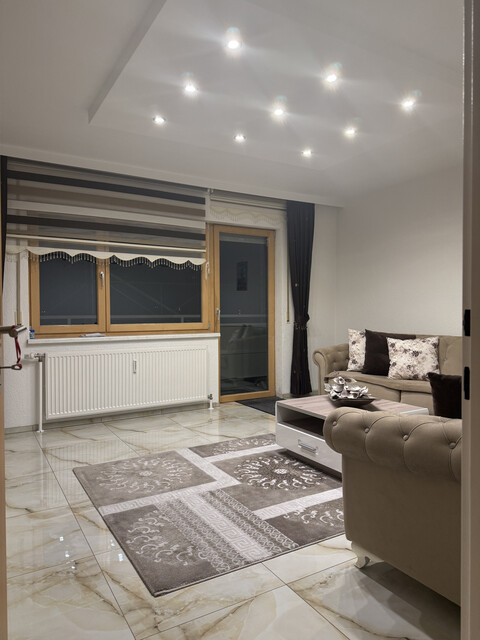Austria Prepares Against Drone Attacks

Due to the drone incidents in Europe in recent months, the federal government plans to initiate the further development of the drone defense strategy. The Council of Ministers made a corresponding decision on Wednesday. The aim is to adapt existing and future protective measures to the changing threat scenarios. A joint forum of the agencies involved in drone defense is planned, among other things.
Government Initiates Strategy for Drone Defense
Defense Minister Klaudia Tanner (ÖVP) said at the presentation of the project, which was fixed via a circular resolution, in the press foyer at the Chancellery, that drones are among the "greatest threats of the present." Like her colleagues, State Secretary Jörg Leichtfried (SPÖ) and NEOS parliamentary group leader Yannick Shetty, Tanner referred to the numerous drone incidents in Europe recently, particularly around airports.
Leichtfried emphasized that the threats are complex and diverse, ranging from espionage to sabotage to destabilization. "No country is immune to these attacks, not even our Austria. Austria can and will likely become a target for these attacks." Particularly at risk are critical infrastructure and easily vulnerable targets such as airports, trains, or road infrastructure. "The threats are by no means abstract, but concrete and massive."
Tanner: Coordination Between All Agencies Necessary
Austria must be protected from these threats, Tanner emphasized. The armed forces recognized the risks early on and have been working on appropriate protective measures for several years. It is important to detect airspace violations by drones, assess the threat situation, and take measures to eliminate them. Here, it is necessary for "perfect coordination" between all affected agencies.
"That's why the Council of Ministers' presentation is so important because it concerns all affected departments," Tanner said, referring to the Ministry of the Interior, the Ministry of Defense, and the Ministry of Infrastructure - the latter being responsible for civil air traffic control (Austro Control).
The Austrian airspace is violated about 50 to 60 times a year, Tanner said. For information gathering, there is cooperation with Austro Control. Then Eurofighters can take off to identify and accompany the intruding aircraft. For a possible shootdown, "clear guidelines" are needed, but also proportionality.
Responsibilities "Relatively Clear"
The responsibilities in drone defense need to be clarified further, said Tanner. Leichtfried also saw a need for action, although everything is already "relatively clearly regulated." In cases of airspace violations, the Ministry of Defense must intervene, while the Ministry of the Interior is more responsible for protection against surveillance.
An essential point for Leichtfried is international cooperation. "Incredible advantages" would arise here, he said. The European perspective is central, Shetty agreed. "No country in Europe can defend itself alone." Therefore, Austria must participate in data exchange.
When asked about the timeframe for when the new strategy should be implemented and for details, the government members were reserved. Today's circular resolution is "so to speak the starting signal," said Tanner. However, one must constantly "live in the situation." It is "somewhat difficult to say when the conclusion will be," as it may turn out over time that changes are still needed, for example, in the Security Police Act. "That we want to be very quick here is beyond question, given the mentioned threat situations," said Tanner.
Make the Armed Forces the "Strongest Army in the Second Republic"
The government members also referred to threats from Russia and recent airspace violations at the European external borders. Therefore, air defense capabilities must also be strengthened, Tanner referred to the Armed Forces' 2032+ development plan, which includes participation in the European Sky Shield Initiative (ESSI), through which the acquisition of missile defense systems beyond short-range is to be handled.
"Our goal, and especially mine as Minister of Defense, is to make the Armed Forces the best and strongest army in the Second Republic - to be able to meet all the new threats such as drones. We are not doing this for its own sake; it is a necessity," said Tanner. The Minister also referred to already made or initiated acquisitions, such as the order of 36 units of the "Skyranger 30" anti-aircraft tower, which can also be used for drone defense.
Tanner also addressed long-range air defense. A corresponding law for financing is currently being negotiated in the coalition, she said.
Shetty also referred to the airspace violations in Europe by Russia: "Putin and his regime are waging a hybrid war," he said. "That is exactly why we must be better prepared in Austria."
(APA/Red)
This article has been automatically translated, read the original article here.
Du hast einen Hinweis für uns? Oder einen Insider-Tipp, was bei dir in der Gegend gerade passiert? Dann melde dich bei uns, damit wir darüber berichten können.
Wir gehen allen Hinweisen nach, die wir erhalten. Und damit wir schon einen Vorgeschmack und einen guten Überblick bekommen, freuen wir uns über Fotos, Videos oder Texte. Einfach das Formular unten ausfüllen und schon landet dein Tipp bei uns in der Redaktion.
Alternativ kannst du uns direkt über WhatsApp kontaktieren: Zum WhatsApp Chat
Herzlichen Dank für deine Zusendung.








